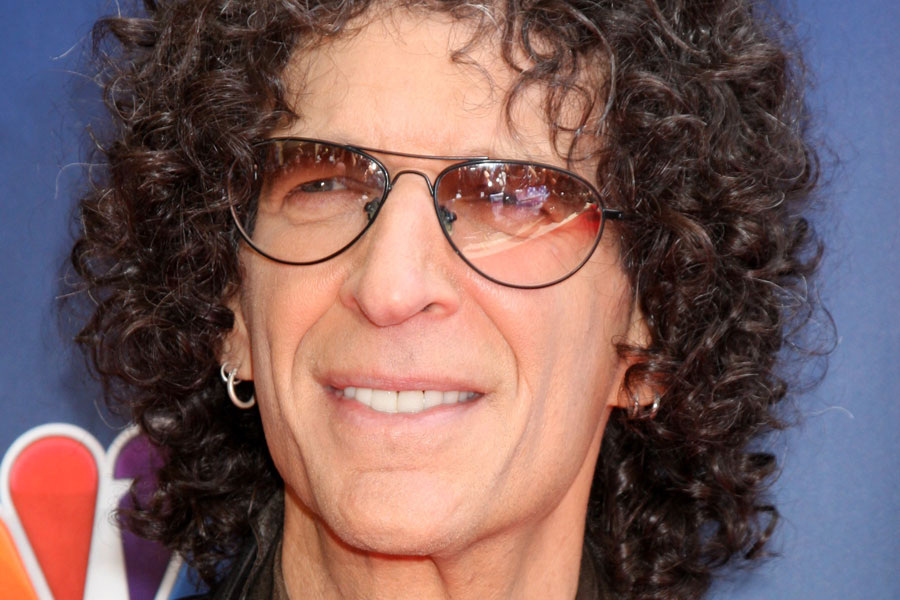Declining Ratings and High Costs Put Howard Stern’s SiriusXM Deal in Jeopardy; “King of All Media” No Longer Smart Investment

NEW YORK, NY – After nearly two decades as the face of SiriusXM’s flagship programming, Howard Stern’s future with the satellite radio company appears increasingly uncertain. Industry insiders and multiple published reports suggest that SiriusXM is preparing to move on from the self-proclaimed “King of All Media,” believing that the costs associated with renewing his multimillion-dollar contract no longer justify the returns.
Stern, now 71, has been with SiriusXM since 2006, when he famously left traditional radio broadcasting behind to escape FCC regulation and censorship. His move to satellite radio was a pivotal moment for the medium, driving subscriber growth and solidifying the company’s identity. Over the years, he has re-signed several high-profile deals, the most recent of which reportedly pays him approximately $100 million per year. That deal is set to expire in the fall of 2025.
Behind the scenes, however, there are growing signs that this era is nearing its end. Multiple sources indicate that SiriusXM executives are no longer convinced that Stern’s show delivers a strong return on investment. While once seen as a cultural disruptor and revenue engine, Stern’s program has faced diminishing relevance in an increasingly crowded digital audio landscape dominated by podcasting, algorithm-driven content, and fast-paced short-form entertainment.
Perhaps most telling are reports that Stern’s actual listenership has declined substantially in recent years. Although SiriusXM no longer publishes ratings data, anonymous insiders claim the show now draws far fewer live listeners than in its heyday. Once rumored to command millions of daily listeners, some estimates now suggest that his audience may have shrunk to under 150,000 regular listeners – a steep drop for a program with such a high production cost.
Stern’s show format – typically involving long-form interviews, comedic bits, and personal commentary – has remained largely unchanged, even as listener behavior has evolved. Platforms like Spotify, YouTube, and Apple Podcasts have fostered shorter, on-demand, and more interactive content consumption, leaving traditional long-form talk radio struggling to keep pace.
Compounding the situation is Stern’s polarizing political commentary, which in recent years has alienated segments of his once-diverse fanbase. Particularly vocal in his opposition to former President Donald Trump, Stern’s transformation from shock-jock to cultural commentator has not sat well with some longtime listeners. While SiriusXM has not explicitly tied political factors to its contract decisions, analysts note that Stern’s divisive public positions could be playing a quiet role in corporate risk assessments.
It’s likely that Stern’s alienation of Donald Trump supporters has contributed significantly to his declining audience, but it’s probably not the only reason for the drop in listenership. Here are some notable examples, with a focus on his tone, context, and recurring themes:
1. Regret Over Past Friendship
- Stern has frequently expressed regret for having befriended and promoted Trump in earlier years, especially during his time as a regular guest on The Howard Stern Show in the 1990s and 2000s.
- He has stated that he never supported Trump politically, even though he gave him airtime and played a role in his media image.
2. Criticism of Trump’s Supporters
- Stern has harshly criticized Trump’s base, at one point saying that Trump “despises” the very people who support him.
- He claimed that Trump would be more comfortable with “elitist” crowds than with blue-collar voters, portraying the former president as inauthentic and manipulative.
3. Comments About Trump’s Handling of COVID-19
- Stern was particularly critical of Trump’s pandemic response, accusing him of mishandling COVID-19 and spreading misinformation.
- He called Trump’s promotion of unproven treatments irresponsible and dangerous.
4. January 6 and Democracy Concerns
- In the aftermath of the January 6 Capitol riot, Stern denounced Trump for inciting violence and undermining democracy.
- He expressed frustration that Trump had not faced stronger consequences and criticized the slow pace of legal accountability.
5. Mental Fitness and Narcissism
- Stern has publicly questioned Trump’s mental stability, calling him a “narcissist” and “unfit” for office.
- He has often remarked that Trump appears more concerned with his own image than with governance or truth.
6. Comments on Military and Veterans
- Stern expressed disgust over reports that Trump allegedly disrespected fallen soldiers, referencing stories from The Atlantic and other sources.
- He stated that someone who insults military service members does not deserve public office.
7. Mocking Trump’s Media Habits
- Stern has mocked Trump for obsessing over television ratings, tweeting excessively, and watching cable news all day, calling it behavior unbecoming of a president.
8. Personal Attacks and Language
- While often avoiding direct political labels, Stern has called Trump “moronic,” “embarrassing,” and “dangerous,” especially on issues like race, science, and law enforcement.
Why His Criticism of Trump Likely Hurt His Ratings
- Large Portion of His Base Was Conservative or Anti-Establishment
Many longtime Stern listeners were drawn to him for his anti-authority, anti-PC, rebellious style. That ethos overlapped heavily with the Trump base, especially when Trump was seen as a political outsider. By turning on Trump, Stern effectively turned on a large part of his core demographic, making them feel insulted or unwelcome. - He Became More Mainstream and Politically Aligned with Liberal Media
In recent years, Stern has aligned more with mainstream liberal viewpoints, which may feel inconsistent or even hypocritical to those who followed his edgy, unfiltered career for decades. Critics have accused him of becoming what he once mocked – safe, polished, and politically correct. - Alienation Through Direct Insults
Rather than simply disagreeing with Trump’s politics, Stern often attacked Trump voters directly, calling them “morons,” saying Trump “hates them,” and mocking their intelligence. That type of rhetoric, repeated on-air, likely made many former fans feel betrayed or disrespected, causing them to tune out permanently.
But Other Factors Also Play a Role
- Shifts in Media Consumption
Audiences today increasingly prefer short-form, algorithmically recommended content (e.g., TikTok, YouTube, Spotify podcasts). Stern’s long-form interviews and static broadcast model simply don’t match modern attention spans or content habits. - Paywall Problem
Stern’s show is still locked behind SiriusXM’s paywall, while most major content today is free or ad-supported. People have many free alternatives for news, comedy, and interviews — from Joe Rogan to local YouTubers. - Repetition and Format Fatigue
After decades on the air, some listeners may feel that the show no longer evolves. The shock value is gone, the stories repeat, and the edge that once made him a cultural force has dulled.
Despite the looming expiration date, there is no formal announcement of a cancellation or retirement. Reports suggest that Stern is open to a short-term contract extension – if terms meet his expectations – but he is also seriously considering walking away. Behind the scenes, there’s concern for the staff and crew who have helped power the show for years, adding pressure to any decision-making process.
Adding a twist to the unfolding story, Stern made an unexpected live broadcast on August 6, breaking from his usual summer hiatus. During the special segment, he introduced “Maximum Metallica,” a new SiriusXM channel launching August 29, featuring exclusive music and interviews with the iconic band. He also confirmed that he would return live on September 2, a sign that for now, he’s not stepping back just yet.
Still, the underlying tension remains. SiriusXM appears to be moving toward a more scalable, cost-conscious programming model, one that relies less on massive celebrity contracts and more on content that can be widely distributed, clipped, and optimized for modern streaming platforms. In this environment, legacy deals like Stern’s may increasingly be viewed as outdated, expensive, and difficult to adapt.
Even if the live show ends, SiriusXM retains rights to Stern’s extensive back catalog, a trove of content that could continue to generate engagement and advertising revenue for years. That archive, however, will not replace the unique immediacy that Stern’s live presence brings, nor will it likely inspire the same level of loyalty from his core fanbase.
Whether Stern ultimately walks away on his own terms, renews under new conditions, or is quietly phased out, one thing is becoming clear: the era of satellite radio being defined by a single shock-jock titan is rapidly drawing to a close. As SiriusXM pivots toward the future, it appears the company has concluded that Howard Stern, once its most valuable asset, may no longer be worth the investment.


